PsychNewsDaily Publishers
100 Summit Drive
Burlington, MA, 01803
Telephone: (320) 349-2484
PsychNewsDaily Publishers
100 Summit Drive
Burlington, MA, 01803
Telephone: (320) 349-2484
New Mexico offers various mental health services, including crisis hotlines, community programs, and counseling for residents, regardless of insurance or income status.
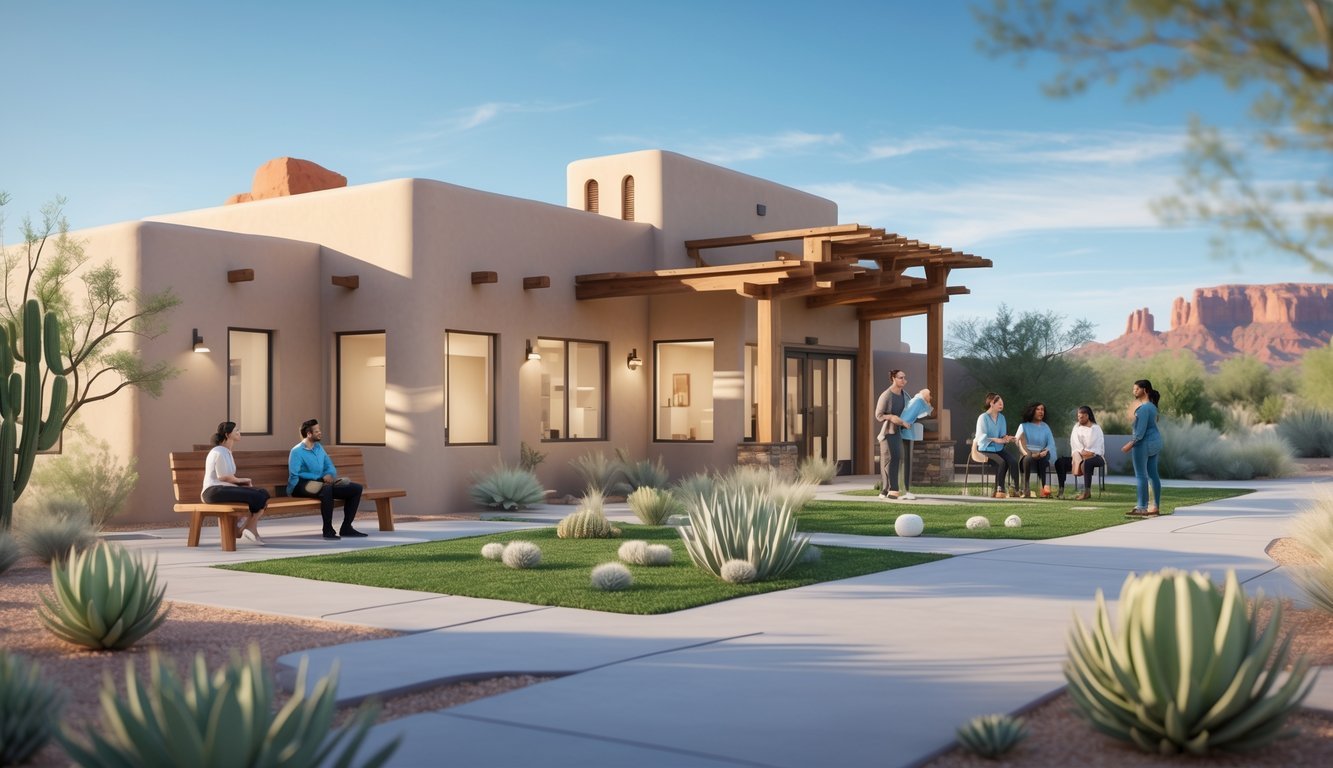
New Mexico has a bunch of free mental health services to help residents get care without stressing about cost. You’ll find everything from crisis hotlines and emergency help to ongoing community programs and preventive care.
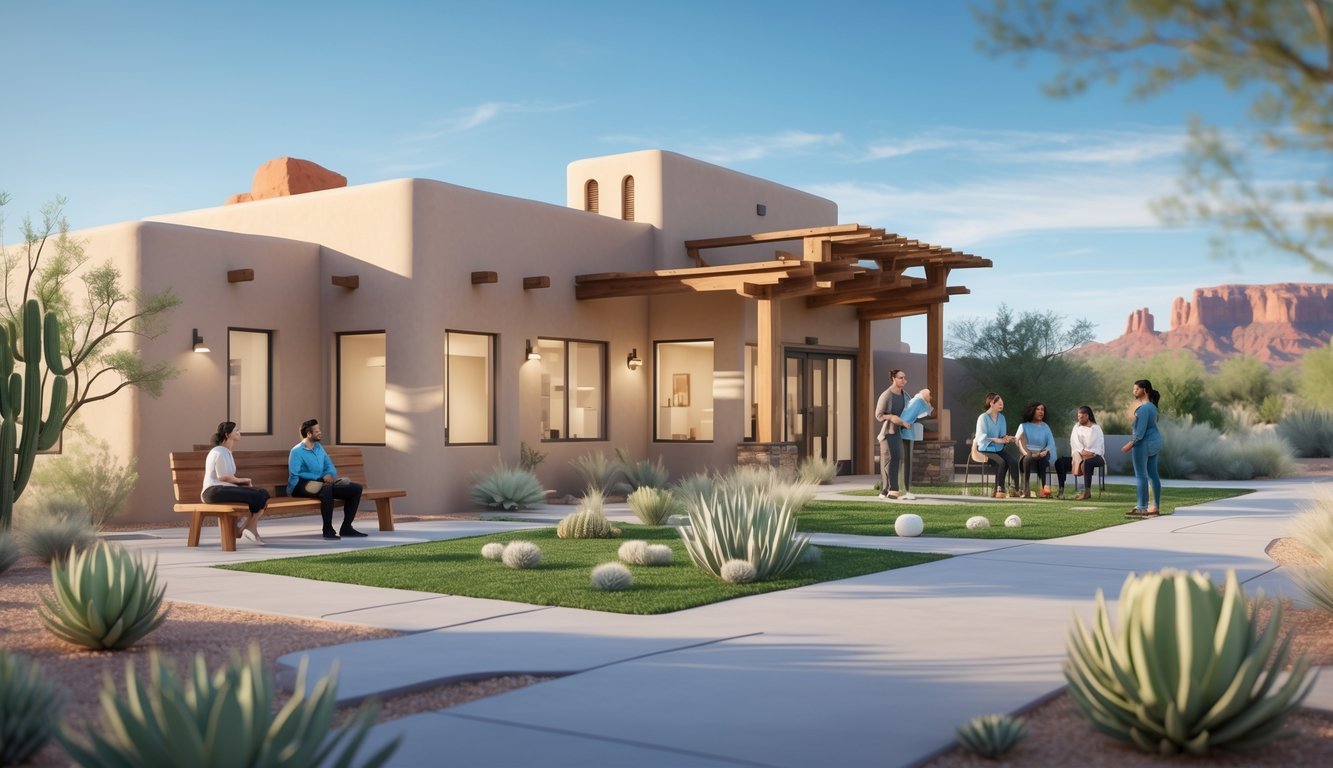
You can get free mental health support in New Mexico through state-funded programs, crisis hotlines like 988 services, community health centers, and local organizations that offer counseling and treatment at no cost. A lot of these options are available 24/7, and you don’t need insurance or proof of income.
Knowing what’s out there and how to reach these resources can really help if you or someone you care about needs mental health support. Whether you need immediate crisis help or long-term therapy, New Mexico has built a network so everyone can get support, no matter their financial situation.
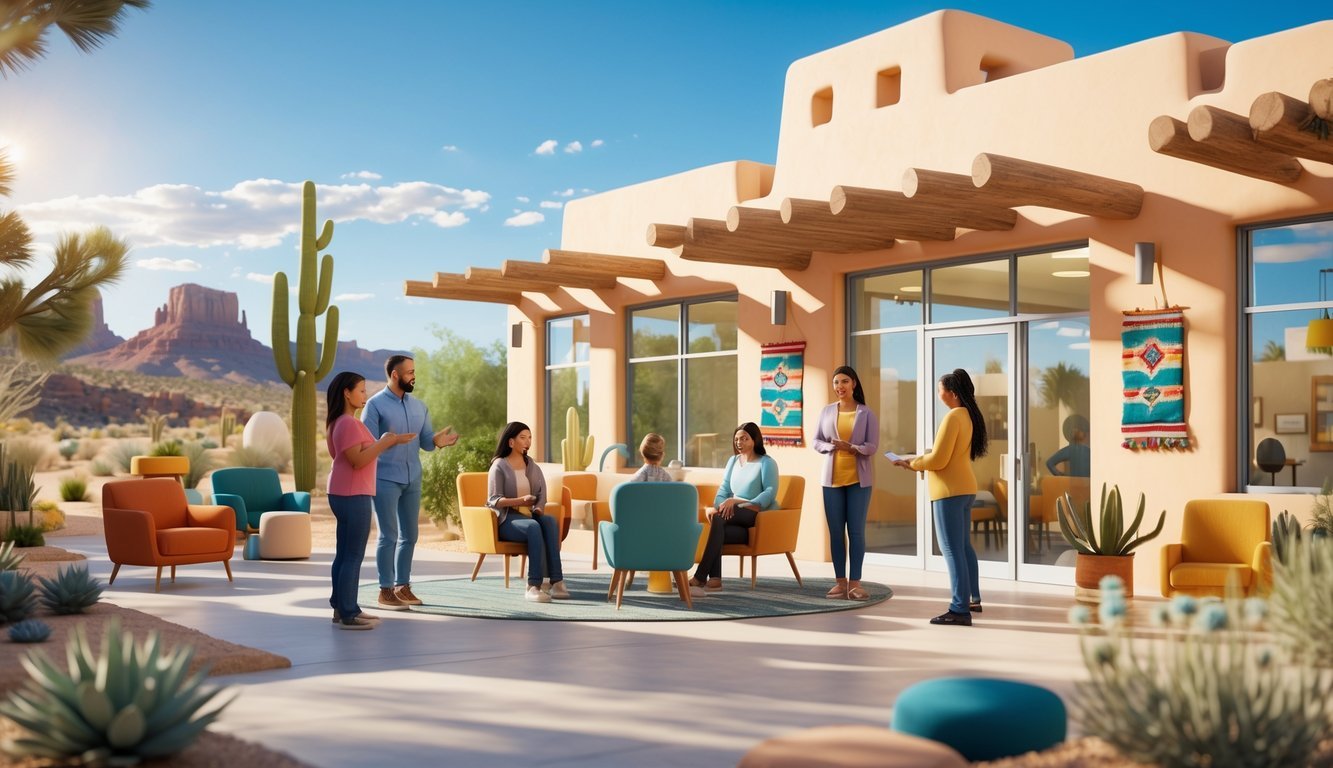
New Mexico has several ways to get free mental health support through state programs, hotlines, and community services. If you’re facing a mental health crisis, you can call or text 988 for immediate help from local counselors.
Anyone in New Mexico can access free mental health services, whether or not you have insurance. Many programs focus on helping people with low incomes or no insurance.
Eligibility usually includes:
Some services have special requirements. Medicaid recipients can use New Mexico’s Turquoise Care program.
Community health centers often use sliding scale fees, so what you pay depends on your income. Veterans can get special support through 988 by pressing 1.
Crisis Support Services
You can get 24/7 crisis counseling through the 988 system. This gives you immediate support for mental health, substance use, and emotional emergencies.
If you need Spanish-language support, press 2. Local counselors train in cultural competency and affirming practices.
Community-Based Programs
Community mental health centers offer ongoing therapy and counseling. They often run group therapy, individual counseling, and case management.
Some places have special programs for youth or families. Wraparound services mix formal treatment with community and family support.
Start by calling 988 for crisis support or to get referrals to local services. Counselors can point you to resources nearby.
Ways to find providers:
Many providers now offer telehealth for people in remote areas. You can also reach out to the New Mexico Health Care Authority for info about programs in your area.
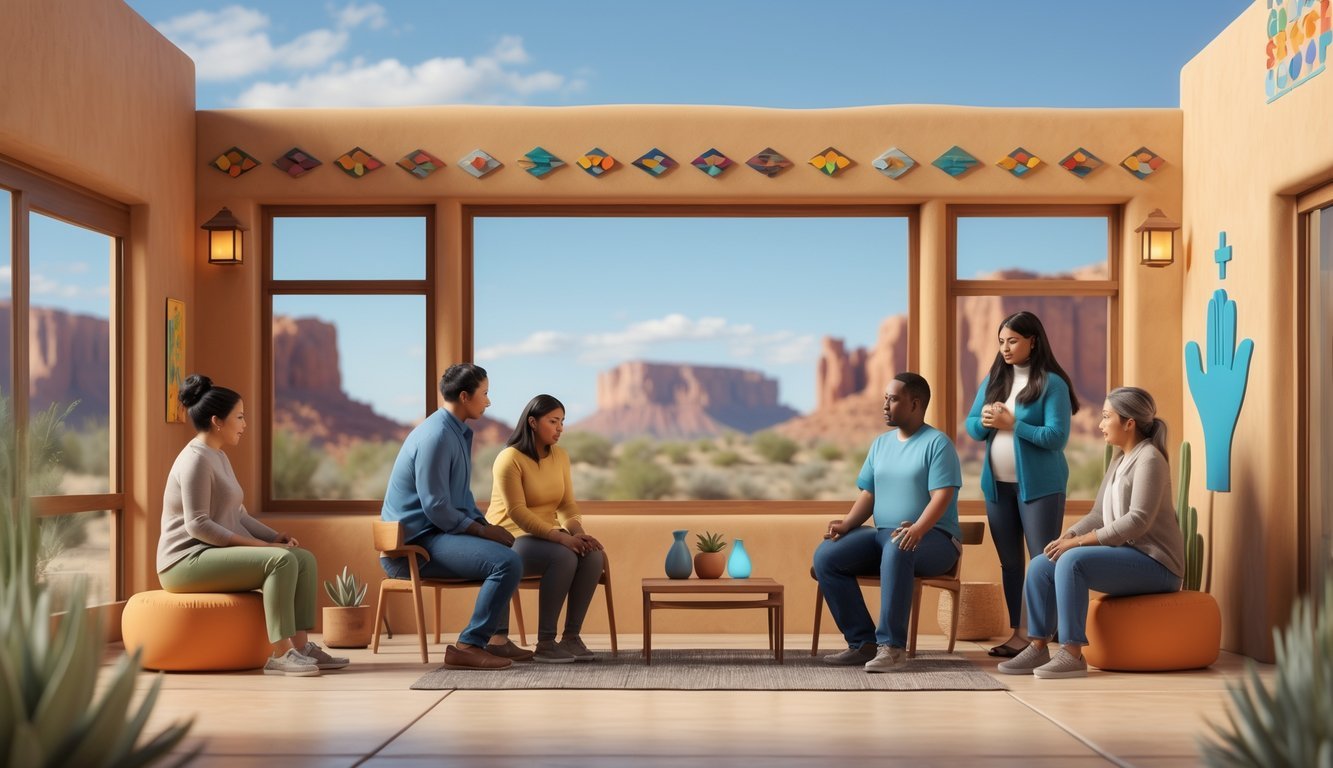
New Mexico has several free crisis intervention services that give you immediate help when you need it. These include 24/7 hotlines, peer support, and even a mobile app for urgent situations.
The New Mexico Crisis and Access Line works as the main crisis service for the state. You can call and talk to counselors who really know the local resources.
They help you get immediate support during a mental health emergency. Counselors can also help you find local treatment options.
Staff know New Mexico’s mental health system and can direct you to the right services based on where you live.
You’ll get confidential support from professionals trained in de-escalation. They can also help set up follow-up care with local providers.
The 988 Lifeline gives free crisis support across the US, including New Mexico. You can call or text 988 anywhere in the state and reach trained counselors.
New Mexico’s 988 service keeps running with local counselors offering support for all communities. The service hasn’t changed with recent national updates.
Available 24/7:
Local counselors answer when they can, so you get support from people who understand New Mexico’s culture and resources.
They’ll help with crisis intervention and suicide prevention. Counselors can also connect you to ongoing local mental health care.
Peer-to-peer warmlines put you in touch with people who’ve been through similar mental health struggles. These services offer support from folks with real recovery experience.
Warmlines aren’t for emergencies, but you can call if you just need someone to talk to.
Peer supporters know what it’s like to struggle with mental health. They share hope and practical tips from their own journeys.
These lines usually run evenings and weekends when other support might be harder to find. Some warmlines also let you text in.
The peer support approach helps cut down on isolation and gives you a real connection with someone who gets it.
The NMConnect app puts mental health resources right on your phone. You can use it to find crisis services and local providers anywhere in New Mexico.
The app gives you hotline numbers and quick access to emergency services. You’ll also find info about mental health facilities and support groups.
Key Features:
Use the app to find help during a crisis or to look up ongoing services. It works statewide, including rural areas.
If you can’t make a phone call, the app’s a handy way to get support, especially during anxiety or panic.
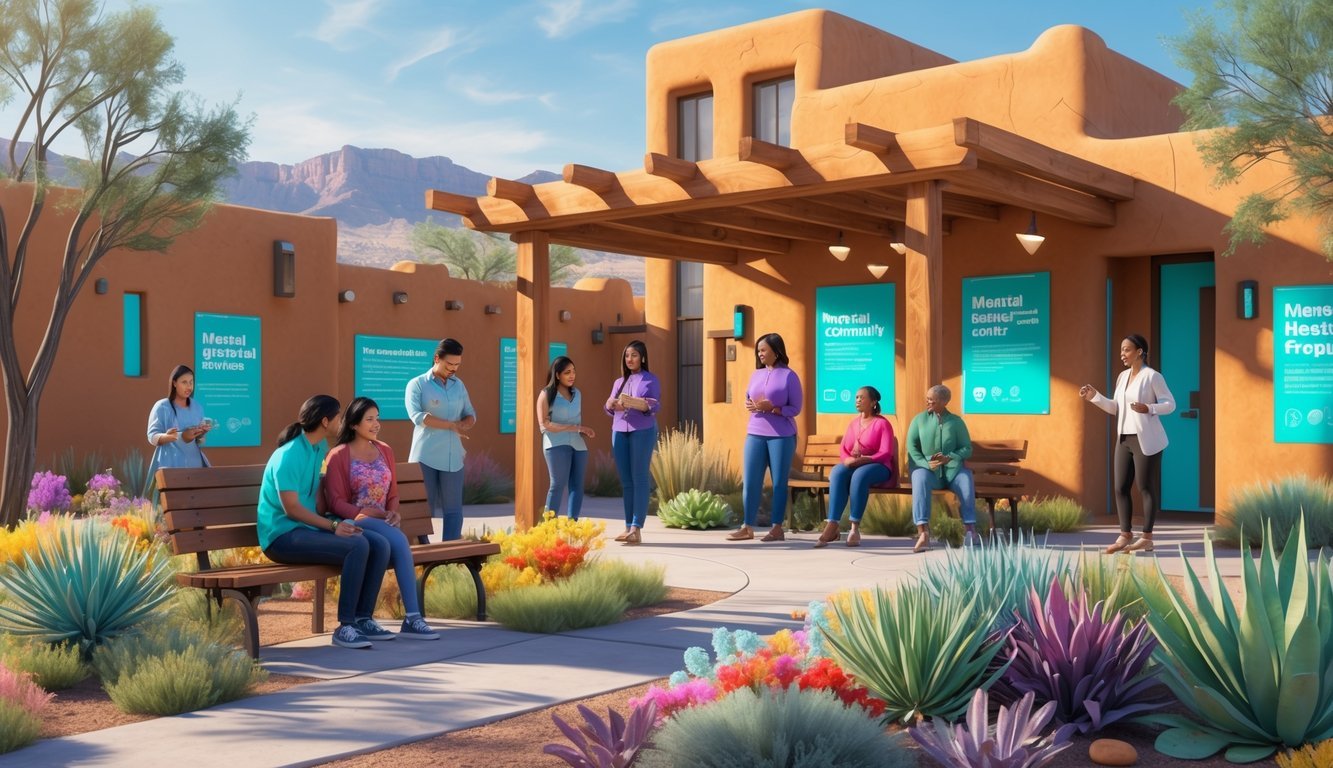
New Mexico has a bunch of community-based mental health programs through local centers, clinics, and peer support networks. These focus on early help and ongoing support to prevent crises.
Community mental health centers really keep local mental health care going in New Mexico. They offer counseling, therapy, and crisis help.
Most centers use sliding fee scales, so you pay what you can afford.
You’ll find individual therapy, group counseling, and family sessions. Many centers run special programs for kids, teens, or adults with specific needs.
Services you’ll usually find:
You can find these centers in most cities and towns. Rural areas sometimes have fewer options, but Eastern New Mexico University’s Social Work program got nearly $2 million in federal funding to help improve rural behavioral health.
Free and low-cost clinics give basic mental health care to people without insurance or with tight budgets. Many clinics team up with hospitals, universities, or nonprofits.
A lot of clinics use graduate students in psychology or social work (under supervision) to keep costs down and care quality up.
Typical services:
Some clinics focus on veterans, people experiencing homelessness, or those with substance use disorders. Others work with specific mental health conditions like depression or anxiety.
Wait times can change based on demand and staff. It’s a good idea to call ahead and ask about openings and what you’ll need to bring.
Support groups bring together people facing similar challenges. Most are free and meet in community centers, churches, or clinics.
Peer support programs connect you with others who’ve dealt with mental health conditions. Peer supporters get training to offer encouragement and practical advice.
Common group types:
Some groups follow structured programs like Alcoholics Anonymous or Depression and Bipolar Support Alliance. Others are more casual, just open discussions.
You usually don’t need a referral to join. Some groups are open to anyone, while others might ask you to register or meet certain criteria.
The Center for Participatory Research at UNM works with communities to improve mental health through partnerships and collaboration. This kind of engagement helps build stronger local support.
Getting mental health care in New Mexico means figuring out state programs, income-based options, and how to get around common barriers. Most places use Medicaid or sliding scales based on what you can pay.
New Mexico offers mental health care through Medicaid and state-funded programs. You can qualify for Medicaid if your income is below certain levels.
Medicaid Income Limits for 2025:
State-funded programs help people who don’t qualify for Medicaid but still need care. These programs serve both adults and kids with serious mental health needs.
You can apply for Medicaid online through the New Mexico Human Services Department. It usually takes about 30 days to process. If you’re in crisis, you can get emergency help while you wait.
Many mental health providers in New Mexico use sliding scale fees. What you pay depends on your income and family size.
Typical sliding scale:
Community health centers all over the state use these sliding scales. Be ready to show proof of income like pay stubs or tax returns.
Some providers let you set up payment plans for more expensive treatments. It never hurts to ask about monthly payment options when you call.
Network adequacy regulations require insurance plans to offer mental health appointments within 10 business days in many states. New Mexico sticks to similar rules.
Common barriers and what you can try:
If you just can’t find services, call the New Mexico Crisis and Access Line at 1-855-662-7474. They’ll help connect you with resources across the state.
Keep notes on any problems you run into. That info comes in handy if you need to file a complaint with your insurance or a state agency.